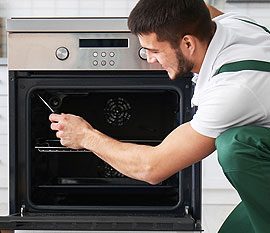
Your dishwasher is one of the most essential appliances in your home, making post-meal cleanup effortless, whether after a simple dinner or a large gathering. However, if you’ve ever opened your dishwasher after a cycle only to find soap residue or an accumulation of foam inside, you’re not alone. Even when using high-quality dishwasher tablets like Finish dishwasher tablets, improper dissolution can lead to leftover detergent, reducing cleaning efficiency and potentially causing buildup over time.
Understanding why this happens is crucial to maintaining your dishwasher’s performance and longevity. Several factors can contribute to dishwasher tablets not dissolving properly, including water temperature, cycle selection, loading techniques, or even issues with the detergent dispenser itself. Left unaddressed, this problem can impact your dishwasher’s effectiveness and, over time, may lead to costly maintenance issues.
To ensure your dishwasher runs optimally and that your detergent tablets fully dissolve during each cycle, it’s essential to identify the underlying cause and take corrective measures. In this guide, we’ll explore the most common reasons for undissolved dishwasher tablets and provide expert solutions to help you get the best possible cleaning results—every time.
6 Reasons Why Your Dishwasher Tablets Aren’t Dissolving—Expert Insights
As a seasoned appliance expert, I’ve seen countless cases where dishwasher detergent fails to dissolve properly, leading to ineffective cleaning and frustration. If your dishwasher tablets aren’t dissolving, here are six likely reasons and what you can do to fix them.
1. Dishwasher Pods Getting Stuck
A common issue is detergent getting stuck in the dispenser, preventing it from releasing at the right time. Here’s what you should check:
- Keep the dispenser clean – Any food particles or soap residue can cause tablets to stick.
- Ensure the tray is dry – Moisture buildup in the dispenser can cause tablets to clump before the wash cycle even begins.
- Load detergent just before starting – Leaving the tablet inside for too long can lead to sticking, preventing proper dissolution.
2. Damaged Dispenser
If the dispenser door isn’t opening correctly, the tablet won’t drop at the right moment, leading to incomplete dissolving.
- Inspect the dispenser for cracks, misalignment, or faulty springs.
- If the door doesn’t open fully during a cycle, it may need repair or replacement.
3. Spray Arm Malfunctions
The dishwasher’s spray arms distribute water to dissolve detergent and clean dishes. If they aren’t functioning properly:
- The tablet may not receive enough water flow to dissolve completely.
- Clogged nozzles can block water distribution—inspect them for food debris and residue.
- Check for cracks or loose spray arms that could prevent proper rotation.
4. Low Water Pressure
Dishwashers rely on strong water pressure to break down detergent and rinse dishes effectively. Low pressure can result in:
- Inefficient detergent dissolution.
- Poor cleaning performance.
- Possible issues with the inlet valve or water supply line.
If you suspect water pressure is too low, check for kinks in the inlet hose, clean the filter, and ensure your home’s water pressure is sufficient. If problems persist, consider professional service.
5. Low Water Temperature
Dishwasher tablets require hot water to dissolve properly. If the water is too cold:
- Tablets may only partially dissolve, leaving residue behind.
- Dishes won’t be cleaned effectively.
To test your water temperature, run the kitchen tap for a minute and check if the water gets hot. If not, you may need to adjust your water heater settings or run your dishwasher on a higher temperature setting.
6. Blocked Detergent Door
Sometimes, the detergent dispenser door gets obstructed by large pots, pans, or dishes. If the door can’t open fully:
- The tablet won’t drop to the bottom of the dishwasher where it can dissolve properly.
- The detergent may stick inside, leading to ineffective cleaning.
Ensure that dishes are loaded correctly, leaving space around the dispenser door for it to open freely.
Final Expert Advice
Understanding your dishwasher’s mechanics can save you from unnecessary frustration. If you want consistently clean dishes, ensure proper maintenance, check for blockages, and use a high-quality detergent like Finish dishwasher tablets for optimal results. If these troubleshooting steps don’t resolve the issue, consider calling an appliance repair expert to diagnose deeper problems.
